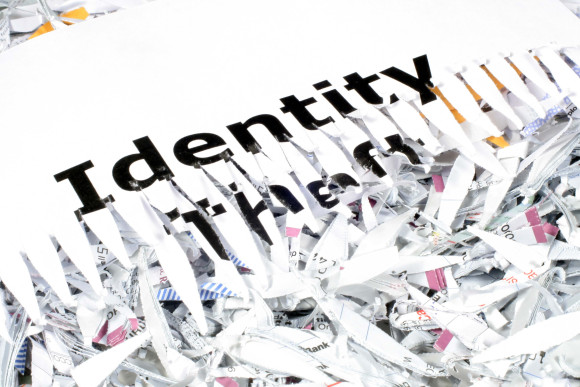The U.S. Supreme Court yesterday narrowed when identity theft can be included as part of federal criminal charges.
In the case (Dubin v. U.S.), the high court found that not every use of another’s identification means there has been an identity theft crime; rather the use of the false identification must be central to the underlying criminal activity.
The court heavily criticized the government for its “sweeping” and “implausible” interpretation of the law that it said would automatically attach aggravated ID theft charges to ordinary billing or payment fraud cases.
The ruling is important because the ID theft law adds a two-year mandatory prison sentence onto underlying offenses that do not impose a mandatory prison sentence of any kind. Sentencing judges may not consider the severity of the offense, even if the amount of money involved is quite small or there are other mitigating factors.
David Dubin was convicted under the federal healthcare fraud law for overbilling Medicaid for psychological testing performed by the Texas company he helped manage. The question before the court was whether, in defrauding Medicaid, he also committed “aggravated identity theft” under the federal identify theft law, §1028A(a)(1). This ID theft law applies and increases prison time if someone “during and in relation to any predicate offense, such as healthcare fraud, knowingly transfers, possesses, or uses, without lawful authority, a means of identification of another person.”
The government argued that the ID theft law was automatically satisfied because Dubin’s fraudulent Medicaid billing included the patient’s Medicaid reimbursement number—a “means of identification.” The District Court allowed Dubin’s conviction for aggravated identity theft to stand, even though, in the District Court’s view, the crux of the case was fraudulent billing, not identity theft.
The Fifth Circuit Court of Appeals affirmed the district court’s ruling in a “fractured decision,” with five concurring judges acknowledging that under the government’s reading of the law, “the elements of the offense are not captured or even fairly described by the words ‘identity theft.’ ”
This case turned on the scope of two of the ID theft law’s elements: Dubin was convicted for “using” a patient’s means of identification “in relation to” healthcare fraud. In the government’s view, a defendant “uses” a means of identification “in relation to” an offense if the defendant employs that means of identification to “facilitate or further” the underlying offense in some way.
But the high court objected to that broad interpretation. Instead it held that someone “uses” another person’s means of identification “in relation to” another offense “when the use is at the crux of what makes the conduct criminal.”
Otherwise, following the government’s reading, aggravated ID theft would apply automatically any time a name or other means of identification happens to be part of the payment or billing method used in the commission of a long list of predicate offenses. The court backed a “more targeted reading” requiring that the use of a means of identification have “a genuine nexus” to the other offense.
When the underlying crime involves fraud or deceit, as many do, this entails using a means of identification specifically in a fraudulent or deceitful manner, not as a mere ancillary feature of a payment or billing method, the court explained.
Dubin’s use of the patient’s name was “not at the crux of what made the underlying overbilling fraudulent,” the court stated. The crux of the healthcare fraud was a misrepresentation about the qualifications of petitioner’s employee. The patient’s name was an ancillary feature of the billing method employed.
The court criticized the “staggering breadth” of the government’s understanding of identity theft. It noted that it has traditionally exercised restraint in assessing the reach of a federal criminal statute but the opinion by Justice Sonia Sotomayor showed little restraint in dismissing the government’s position:
“The Government’s reading would sweep in the hour-inflating lawyer, the steak-switching waiter, the building contractor who tacks an extra $10 onto the price of the paint he purchased. So long as they used various common billing methods, they would all be subject to a mandatory two years in federal prison. To say that such a result is implausible would be an understatement.”
The court noted that this type of prosecution is not uncommon. The government has, by its own admission, targeted with identity theft a defendant who made a counterfeit handgun permit for another person; unlicensed doctors who issued prescriptions that their actual patients would then fill at pharmacies; and a defendant who provided massage services to patients to treat their pain,” but improperly billed this “as a Medicare-eligible physical therapy service.”
While the government promised that prosecutors would “act responsibly in charging defendants under its sweeping reading,” the court said it cannot construe a criminal statute on the assumption that the government will “use it responsibly.”
Chief Justice John Roberts and six other justices joined in Sotomayor’s opinion; Justice Neil Gorsuch filed a concurring opinion.
Topics Fraud
Was this article valuable?
Here are more articles you may enjoy.



 How One Fla. Insurance Agent Allegedly Used Another’s License to Swipe Commissions
How One Fla. Insurance Agent Allegedly Used Another’s License to Swipe Commissions  The $10 Trillion Fight: Modeling a US-China War Over Taiwan
The $10 Trillion Fight: Modeling a US-China War Over Taiwan  California Smoke Damage Act Would Enable Wildfire Victims to Expedite Claims
California Smoke Damage Act Would Enable Wildfire Victims to Expedite Claims  A 10-Year Wait for Autonomous Vehicles to Impact Insurers, Says Fitch
A 10-Year Wait for Autonomous Vehicles to Impact Insurers, Says Fitch 

